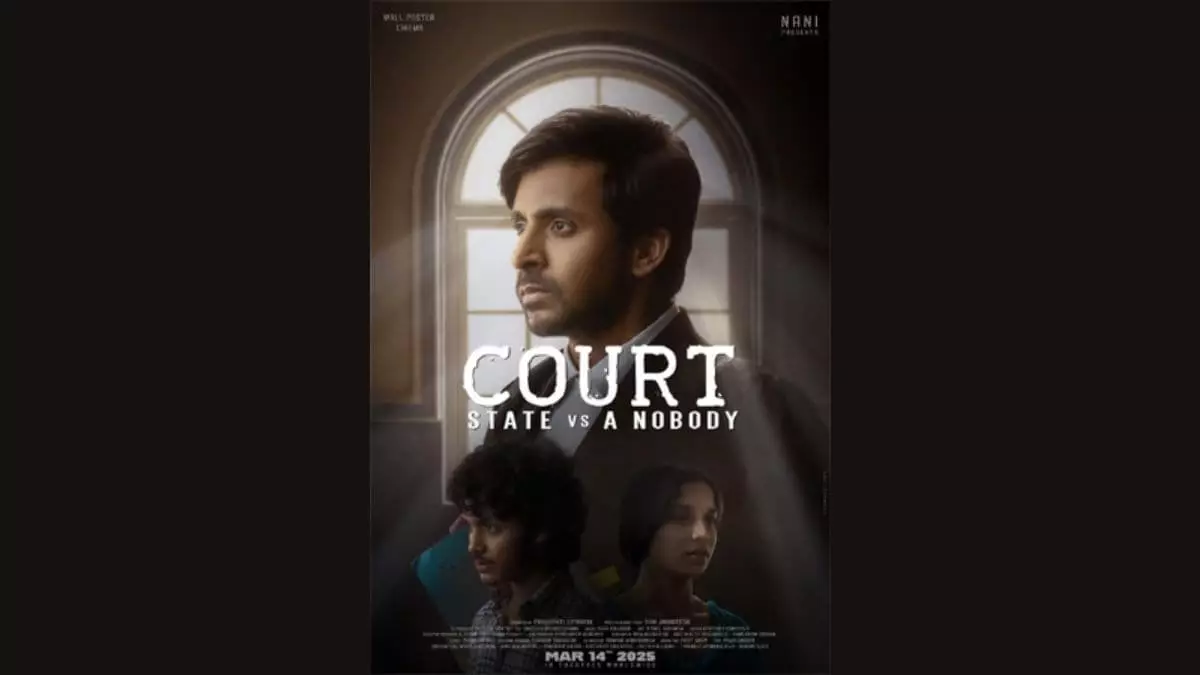From the moment “Court – State vs. A Nobody” was unveiled, a palpable excitement surged through film circles, amplified by the involvement of actor Nani as the film’s presenter. This is not merely a courtroom drama; it’s a courageous narrative that digs deep into the sociopolitical fabric of contemporary India. Directed by Ram Jagadeesh, a newcomer in the industry, the film promises to shed light on the underbelly of legal manipulations, especially as it centers around the delicate POCSO Act. The film’s ambition is reflected not only in its storyline but also in its ensemble cast, which includes notable names like Priyadarshi and veteran actor Sivaji in a transformational role.
A Captivating Storyline That Resonates
At the heart of the film lies Chandu, a college dropout whose life takes a dramatic turn when he becomes ensnared in a legal battle instigated by Jabili’s manipulative uncle. The intricacies of the POCSO Act are charmingly unveiled as the narrative unfurls, posing critical questions about justice, morality, and societal prejudice. The plight of Chandu, who is framed by a system designed to protect, speaks volumes about the failings within that very framework, criticizing both the actors and societal norms that condone such manipulations.
The Stakes are High, and the Performances Deliver
The courtroom sequences convey a sense of urgency and emotional stakes that grab hold of audiences. While the film dips into the realm of drama, viewers are never left feeling overwhelmed by predictability. Each character, from the rookie lawyer Teja to the antagonistic uncle portrayed by Sivaji, adds layers of complexity. The film shines particularly in these emotional confrontations, ensuring that viewers walk away not only entertained but also introspective about the legal issues at play.
Commercial Success Meets Thoughtful Commentary
In an industry often overshadowed by extravagant budgets and star power, “Court – State vs. A Nobody” is a refreshing breath of air, defying stereotypes often associated with small-budget films. The acquisition of Netflix’s post-theatrical streaming rights for Rs. 8 crore highlights the film’s potential to resonate beyond the silver screen. It signifies that engaging storytelling can indeed garner appreciation and commercial success, making it a game-changer for independent cinema.
Strong Messages Wrapped in Spectacle
Critics have lauded the film for its realistic portrayal of legal proceedings, praising how it delves into the nuances of the POCSO Act without diluting its essence for dramatic effect. While some felt that storytelling shortcuts were evident, the bold stance against societal injustices cannot be overlooked. Unlike many contemporary films that skirt around uncomfortable issues, “Court – State vs. A Nobody” addresses them head-on, urging viewers to reflect on both personal and societal accountability.
The Future of Legal Dramas in Indian Cinema
With its gripping narrative and strong performances, the film sets a precedent for future legal dramas in Indian cinema. It challenges filmmakers to tackle weighty social issues without sacrificing entertainment. If “Court – State vs. A Nobody” is any indication, the future of cinema, especially legal narratives, leans toward films that are not just stories but social commentaries poised for reflection and discussion in audiences’ minds.



Leave a Reply